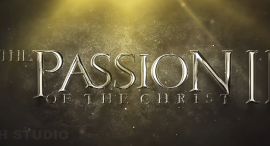
More than half of today's Generation Z or those aged 13 to 25 years old admit to being "unsettled, uncomfortable, or stressed" over the uncertainties of their lives, while only one-fifth or 19% said that being involved with a faith community "helped them cope." Those are the findings of a recent survey conducted by the Springtide Research Institute, which is geared towards sociological studies on teenagers and young adults.
According to the Washington Times, 63% of members of Generation Z said that they felt "unsettled, uncomfortable, or stressed" regarding life's uncertainties. They were also found to be more likely to report overall happiness if they were "flourishing a lot" (73% reported this) or "somewhat flourishing" in their religious lives. A majority or 73% reported overall happiness because they were "flourishing a lot" while 65% reported overall happiness because they said they were "somewhat flourishing" in their religious lives. Meanwhile, only 44% of those who said they were "not flourishing" said that they experienced overall happiness.
Data from the Springtide Research Institute draws a similar conclusion to a Pew Research Center survey released in December that showed how 29% of Americans identified themselves as "religiously unaffiliated," a 13-point increase from 2007. The number of Americans who said they were Christian also dropped from 78% in 2007 to 63% in 2021.
"What we're finding with young people is that they're very much interested in religious questions," Springtide Executive Director Josh Packard explained of the survey results. "They're just not necessarily so interested in the ways that institutions are engaging them and those questions."
Packard urged "traditional religious institutions" to be "more innovative in terms of how they engage...with the youngest generation that's out there" because it is this innovation that will be the "key" to drawing younger generations to the church. According to Springtide, its research throughout the last three years revealed relatively stabled levels of religiosity amongst members of Generation Z.
In the past five years, research showed that between 29% and 33% admitted they would become "more religious," while 27% to 33% said they were "less religious." Respondents who said that their religious involvement stayed "about the same" showed the most change, from 44% in 2020 down to 38% in the summer of 2021, then down again to 34% in December the same year.
Respondents explained that "shared values," which included "immigration rights, income inequality, LGBTQ inclusion and support for Black Lives Matter" were more important when choosing a religious affiliation than "shared beliefs" or religious tenets or doctrine. Packard explained that while doctrine is definitely a reason as to why a congregant may leave a church, it is "not typically the reason why people leave church."
Packard explained that what discourages the youth from participating in religious groups is the "ultimatum of 'believe everything we believe, and you can join us'" that some religious groups uphold. His suggestion to religious groups is to have "really forward-thinking and innovative responses," which he believes may draw members of Generation Z into relationships of faith. He warned that those groups who refuse to innovate will "continue the trend of their own demise."
In addition, Packard underscored the important role that adults play in helping develop the youth's affilation for traditional institutions. The Springtide executive director highlighted the "importance of having a trusted relationship with an adult in your life" because this is what "guides young people's decisions" and is the "most influential source" in a young person's religious life.
























